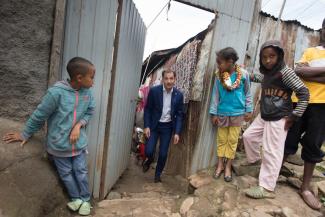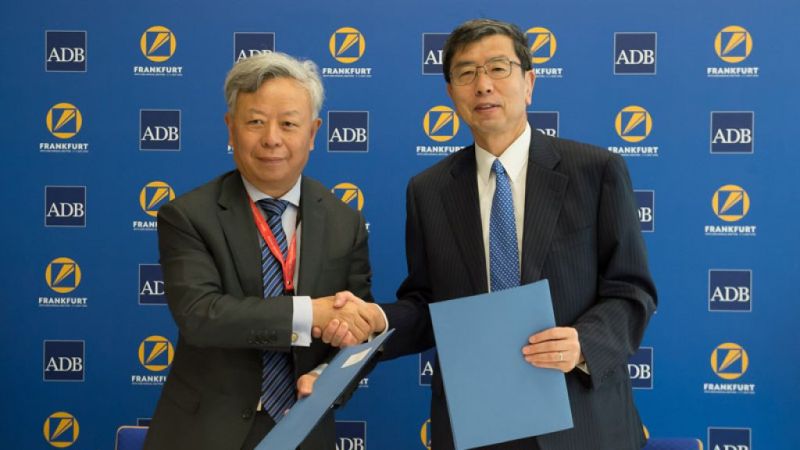Multilateral affairs
Missed opportunity

Without much media attention, many representatives of governments, private-sector companies and civil society met in Addis from 13 to 16 July to decide how much to invest in global justice and sustainability in the future. The decisions made in the Ethiopian capital will have a bearing on the two upcoming global conferences on the Sustainable Development Goals in New York in September and on climate change in Paris in December. Without reliable funding, there can be no meaningful progress in either field of policy.
In Addis, civil-society organisations focused their expectations on three issues:
- ensuring appropriate funding for sustainable development and climate protection,
- providing a well-defined framework for private investments and
- improving the international tax system with an eye to boosting government revenues.
Unfortunately, however, the Addis Ababa Action Agenda, which was adopted, remains rather vague on any of the three areas.
The outcome document lists all aspects of development finance, from domestic resources, trade and foreign debt through to systemic reform issues. It even points out that sustainable development and climate issues are closely related. However, there is a lack of binding commitments. The developed countries’ old and unfulfilled promise to spend 0.7 % of gross national income on official development assistance was reiterated – but no dates were indicated. The same is true of the pledge to provide more resources for international climate protection. Such vagueness is not helpful, given that international negotiations require trust.
Many policy makers apparently believe that private-sector investments and public-private partnerships can serve as magic wands to compensate for stagnant public funding. The outcomes are systemically limited, however, since profit-driven companies do not invest in the poorest countries and regions, nor do their business activities benefit the most marginalised. On top of this, it is impossible to make much profit in essential social sectors such as basic education and health care.
It is even more irritating that the Action Agenda does not include a commitment to respect human rights as well as binding social and environmental standards. Such a commitment is the precondition for making private-sector engagement contribute to overcoming poverty and inequality.
The Addis summit was close to failure, moreover, because the developed countries refused to accept the demand of developing countries and emerging markets to establish a UN commission for cooperation in global tax issues. Accordingly, the Organisation for Economic Cooperation and Development (OECD), largely a club of rich nations, will continue defining global tax standards. This is clearly not acceptable given that developing countries and emerging markets lose an estimated $ 200 billion annually due to tax evasion and tax avoidance.
The OECD countries were similarly unwilling to compromise in other important fields. Therefore, existing trade and investment agreements will not be revisited to assess risks and side effects. Nor was progress possible on creating a multilateral legal framework for sovereign debt restructurings. Just how necessary it is to create such a framework became evident with the EU’s current Greek crisis, which overshadowed the summit in Addis.
The Addis Agenda will not add much momentum to the summits in New York and Paris. It is more likely to increase the burden. A glimmer of hope, however, is in the strengthening of the follow-up process for the Addis conference. Henceforth, governments will discuss progress in financing for development matters in an annual forum. This outcome may prove a useful precedent for the implementation of the SDGs.
Bernd Bornhorst is the chairman of VENRO, the umbrella organisation of development non-governmental organisations in Germany.
b.bornhorst@venro.org











